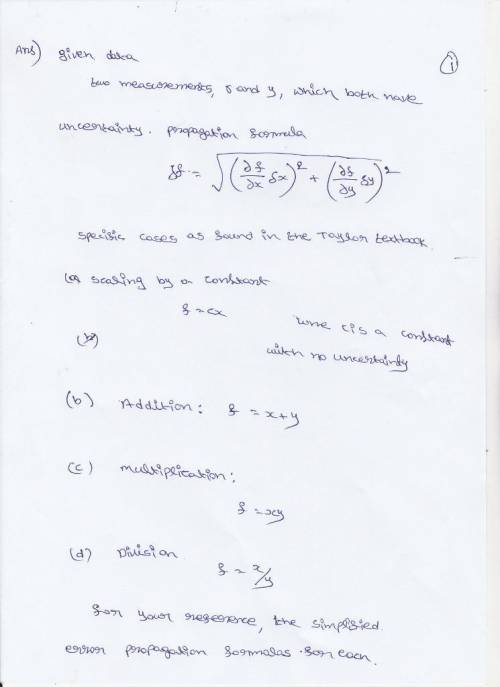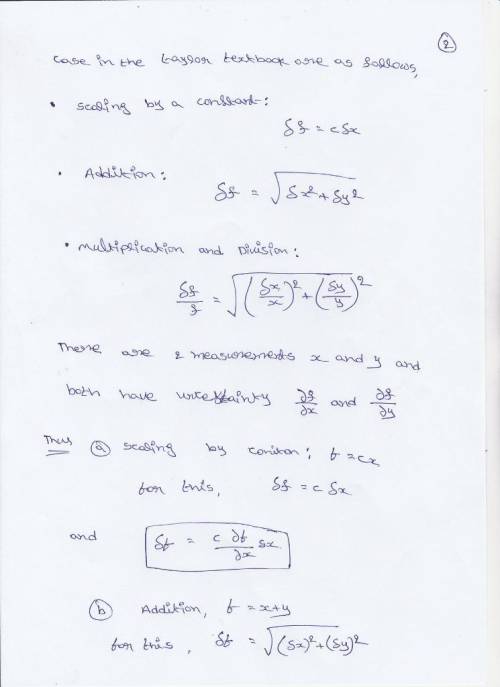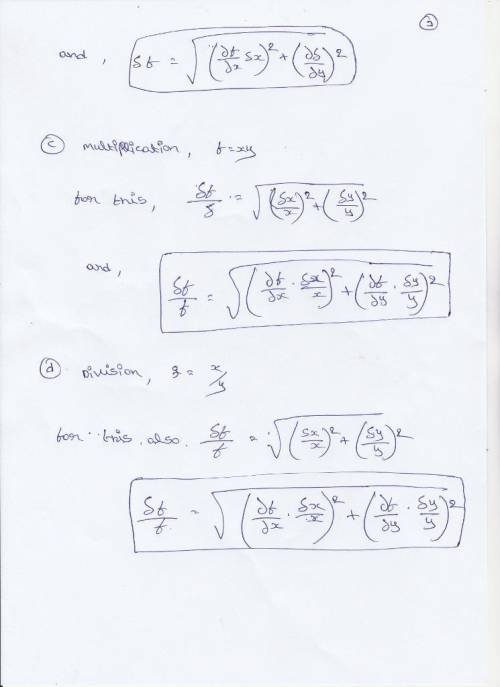
Mathematics, 14.04.2020 21:05, ayindejoy
Given two measurements, x and y, which both have uncertainty. Use the general error propagation formula, δf = vuut ∂f ∂xδx!2 + ∂f ∂y δy!2 to derive the error propagation formulas, i. e. the expression for δf, for the following specific cases as found in the Taylor textbook. (a) Scaling by a constant: f = Cx where C is a constant with no uncertainty. (b) Addition: f = x + y (c) Multiplication: f = xy (d) Division: f = x y

Answers: 1
Other questions on the subject: Mathematics


Mathematics, 21.06.2019 15:30, WhiteWinterRose
Which equation represents the line that passes through the points and (4, 10) and (2, 7)? y = 3/2x - 11y = 3/2x +4y = - 3/2x + 19y = - 3/2x + 16
Answers: 2


Mathematics, 21.06.2019 18:00, babydolltia28
Is a positive integer raised to a negative power always positive
Answers: 1
Do you know the correct answer?
Given two measurements, x and y, which both have uncertainty. Use the general error propagation form...
Questions in other subjects:


Engineering, 20.10.2020 04:01


Engineering, 20.10.2020 04:01

Mathematics, 20.10.2020 04:01



Biology, 20.10.2020 04:01


Social Studies, 20.10.2020 04:01









